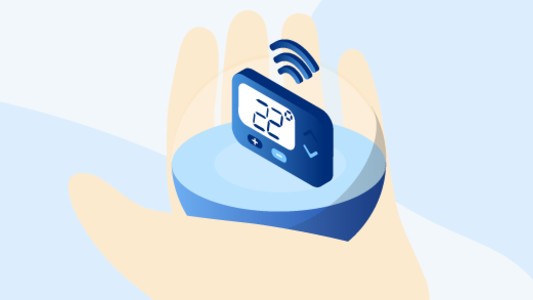Energy Saving Tips: How to Lower Your Home Energy Costs Page 1
Saving energy at home is a simple yet powerful way to reduce energy bills and contribute to a more sustainable future. By making conscious choices and adopting energy-efficient habits, you can significantly lower your energy consumption. From switching to LED light bulbs and upgrading to energy-efficient appliances to upgrading your heating and cooling systems, there are numerous ways to reduce energy waste and save money.
Top 5 Energy Saving Tips in Ireland
Reducing your energy consumption is not only good for the environment, but can also help you save money on your home energy bills along with:
- Lower energy bills.
- Positive environmental impact.
- Increased comfort.
- Improved health.
- Increased property value.
Here are 5 simple tips to help you save money and energy:
Switch to LED Bulbs
LED lightbulbs are a fantastic way to save energy and money.
They use significantly less electricity than traditional bulbs and last much longer, reducing the need for frequent replacements.
By switching just one bulb, you can save around €6 per year. Imagine the potential savings if you replace all the bulbs in your home! You could save over €60 annually.
Invest in Energy Efficient Appliances
Energy-efficient appliances can significantly reduce your household's energy consumption and, in turn, your energy bills.
When shopping for new appliances, look for those with the highest energy efficiency rating, typically having an A+++ label. These appliances are designed to use less energy while delivering optimal performance.
For example, switching from an older, less efficient fridge-freezer to a modern A+++ rated model could save you around €100 per year.
Similarly, upgrading your washing machine to an energy-efficient model can save you around €30 per year.
Clever Cooking Habits
Simple tweaks to your cooking habits can lead to significant energy savings.
By using lids on pots and pans, you can trap heat and reduce cooking times.
Additionally, consider turning off the hob or oven 5 minutes before finishing cooking and using the residual heat to complete the cooking process.
Consider using smaller appliances like microwaves or toasters for quick meals, rather than turning on your oven or stovetop. Air fryers, for example, can reduce your consumption of electricity by almost 50% compared to conventional ovens.
On top of that, defrosting food in the refrigerator overnight, rather than using the microwave defrost setting, can save energy too.
Be Smart About Your Heating
Smart thermostats offer a convenient and efficient way to control your home's heating and cooling systems.
These devices can learn your routines, adjust to external factors like weather, and optimize energy usage.
By setting personalized schedules, you can ensure your home is at the ideal temperature when you need it, and energy-efficient when you're away.
Some smart thermostats even allow you to control your heating and cooling remotely, giving you peace of mind and the ability to save energy.
Save on Hot Water
Heating water can be an expensive so any energy efficient practices we can incorporate will help reduce this cost
Consider some of the following:
- Insulate Your Water Heater: A well-insulated water heater can significantly reduce heat loss, saving energy and money.
- Lower the Temperature: Lowering the water heater temperature by just a few degrees can make a difference in energy consumption.
- Shorter Showers: Reducing shower time can save both water and energy.
- Cold Water Wash: Wash clothes in cold water whenever possible, as it significantly reduces energy consumption.
Large Investment Energy Saving
Here we look at items that take more time to implement, and are therefore more costly, but can also have the biggest impact on the long-term energy savings they bring:
- Insulation - whether it is for the cavity walls, the attic, or any part of your home, a well-insulated home is the sure way to lower energy bills.
- Heating - Heat pumps can offer a great alternative to traditional boilers that not only help you save energy, but are much more environmentally friendly.
- Solar Panels - While being a large scale investment initially, the long term savings in terms of energy consumption make solar panels a worthwhile for those who can afford them
Switch Provider and Save Energy
Switching energy suppliers is by far the most effective way to reduce your energy costs.
By comparing different energy tariffs and choosing a provider that offers competitive rates and green energy options, you can save money and help the environment.
Finding the cheapest energy provider for your home needs and making that switch will help you save energy.









